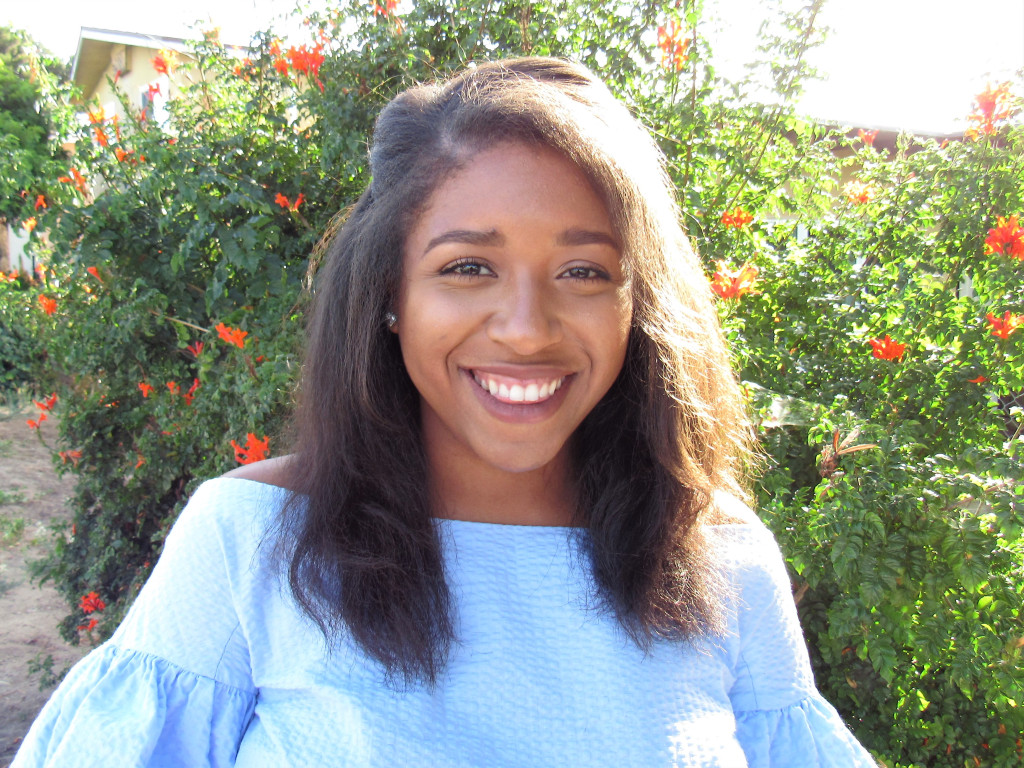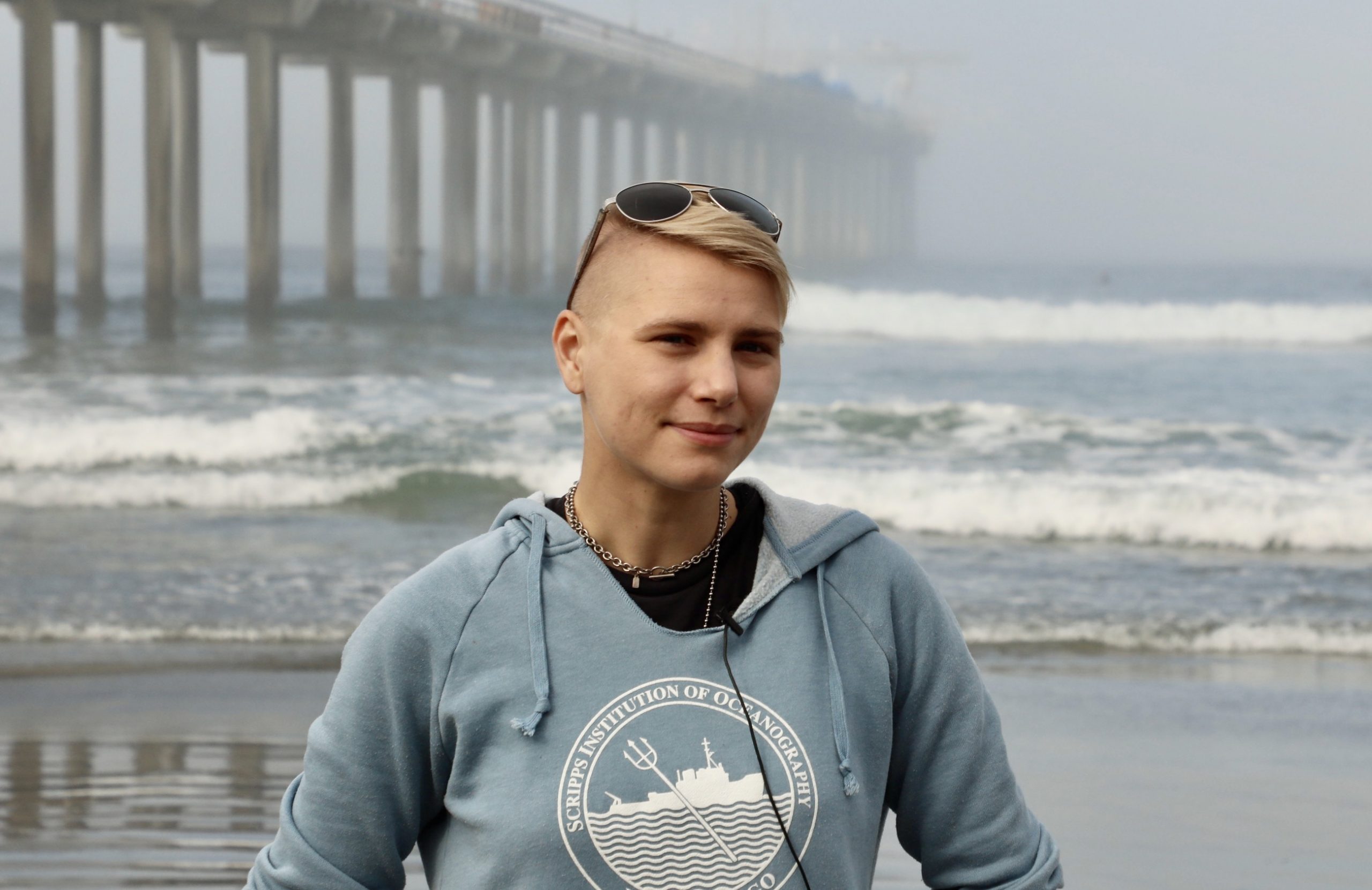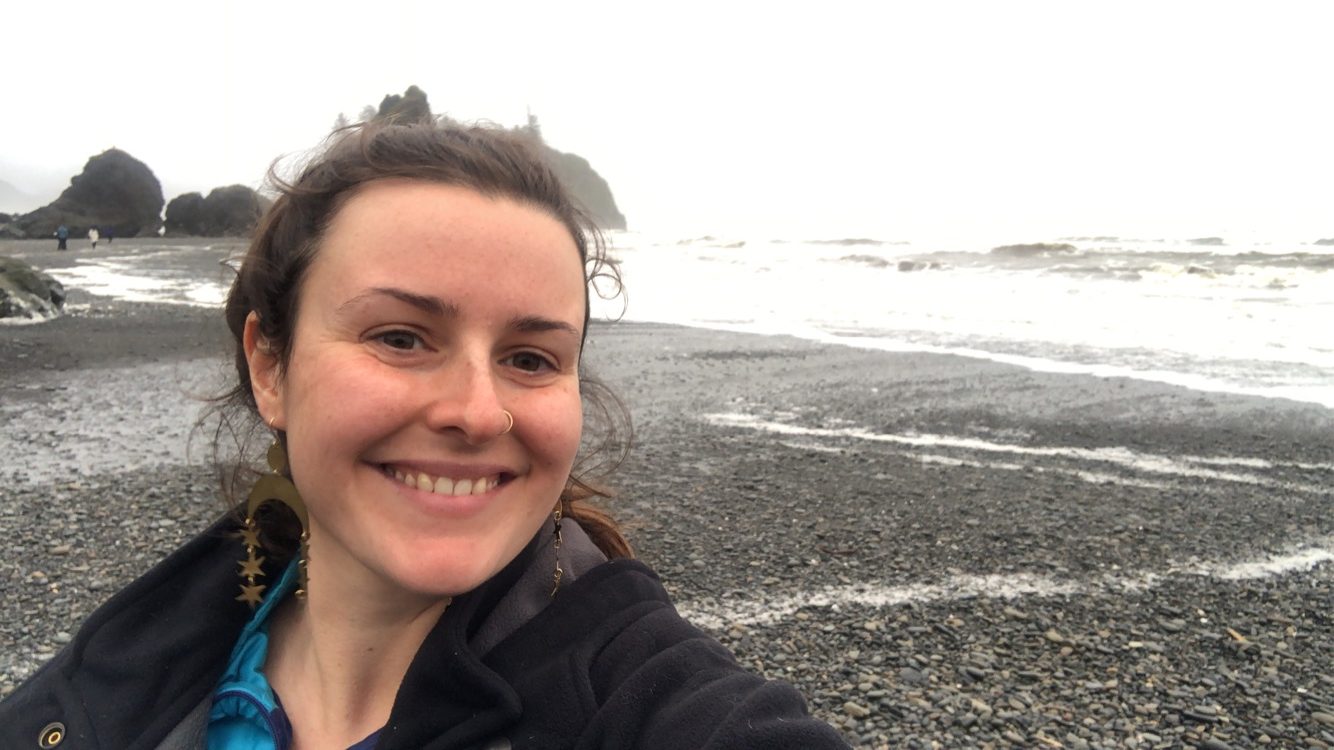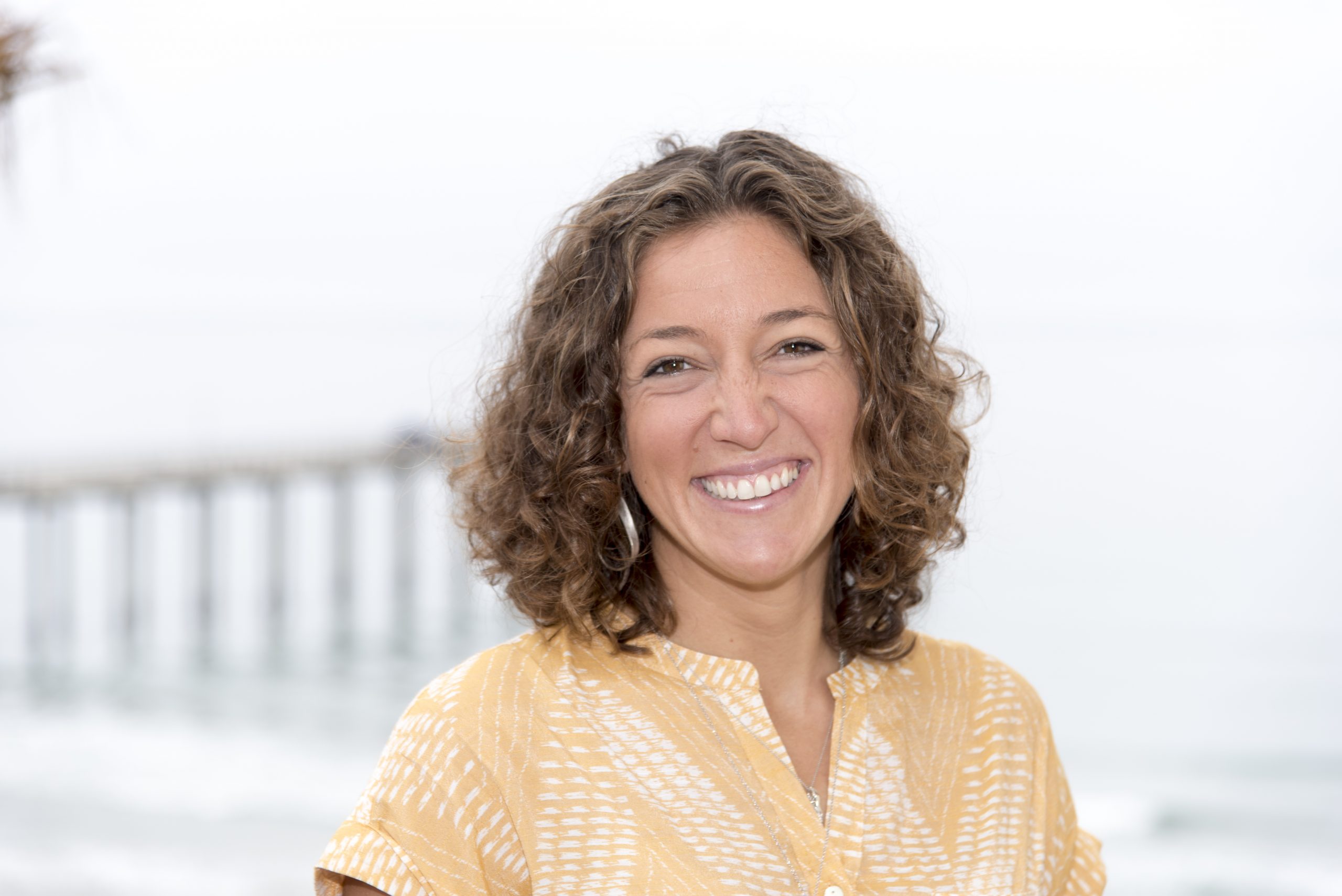
Elyse Goin
MAS Graduate Student
egoin@ucsd.eduElyse has been interested in the ocean ever since she went to SeaWorld camp at nine years old! That interest led her to complete a Bachelor's degree in Marine Biology at UC San Diego. During that time, she learned from a wide array of scientists and researchers, some of whom gave her positions listening to hydrophone audio or synthesizing deep-sea worm DNA. Upon graduating, Elyse started working as a science Interpreter at the Birch Aquarium and soon after became an Instructor. There she taught ocean, earth and climate science to guests from the age of 1 to 100 on land or on sea. Elyse most recently worked for the Escondido Creek Conservancy as a Facilitator, leading groups of local children through the watershed habitat. Now in the Master of Advanced Studies, Marine Biodiversity and Conservation Program, Elyse is focused on coastal communities and their response to climate change impacts. She is Trinidadian and is currently working with local community partners to better understand their traditional knowledge. Elyse is overjoyed to learn more about her culture and the amazing people of Trinidad and Tobago!
Risk Perception and Community Action: Assessing Risk Perception of Climate Change Impacts in Trinidad and Tobago Through Time
Capstone Symposium '21 Video - Story Map - Written Report

Gene Depuy
MAS Graduate Student
gdepuy@ucsd.eduGene currently holds a BS in Political Science with minors in Sustainability and International Studies, and wrote their undergraduate thesis on fishery management and sustainability. Their background is in social and environmental activism and organizing, mainly focused on LGBTQ+ rights and marine protection/conservation. Gene is working in the Scripps Masters of Advanced Studies degree in Marine Biodiversity and Conservation to continue to combine marine science and advocacy. They are very interested in issues of fishery sustainability and plastic pollution, but most of their work is centered around long-term reforms of systems of exploitation which have resulted in degradation of the natural world as well as systemic marginalization of various groups. Currently, they are working with Dr. Rivera-Collazo on a project to improve scientists' engagement with the communities in which they work.

Simona Clausnitzer
MAS Graduate Student; Research Affiliate
sclausni@ucsd.eduSimona is a research assistant for the California Heritage Climate Vulnerability Index project in collaboration with the CA State Historic Preservation Office. With this project, she works with Tribal councils, local governments, and community organizations to develop assessments that measure how cultural heritage is impacted by climate change. She earned her MAS degree from Scripps Oceanography’s Marine Biodiversity and Conservation program where she used the tools of phenomenology, discourse analysis, and the artform of printmaking to conceptualize two case studies of environmental justice: hurricane impacts in Puerto Rico, and the necessity of anti-racism within conservation. Previously, she worked seasonally as a field assistant for various ecology and geology research teams, for the National Park Service as an interpretive ranger, and on tall ships and catamarans as a marine naturalist and sailing educator.
En el Ojo del Huracán // In the Eye of the Storm: Conceptualizing Climate Justice through Printmaking
Curriculum Vitae
Graduate Research Symposium Presentation

Amanda Millin
MAS Graduate Student; Outreach Affiliate
amillin@ucsd.eduAmanda Millin is a former food and travel writer and editor with an M.S. in Publishing from Pace University in New York. An interview with a Michelin-starred chef about his love for sustainable, small-scale aquaculture challenged everything she knew about farmed fish. Hungry to learn more, she immersed herself full-time in research. The journey allowed her to live and work with numerous indigenous and community-based aquaculture systems around the world, including Madagascar, South Africa, Fiji, the Philippines, and Hawaiʻi. Looking to supplement her on-the-ground Indigenous science with Western science, she completed a master’s in Marine Biodiversity & Conservation at Scripps Institution of Oceanography, where she joined Dr. Rivera-Collazo’s lab. Having finished the program and moved back to Oʻahu, she is now the food security program manager at Mālama Puʻuloa—a non-profit working to restore loko iʻa (traditional Hawaiian fishponds) to Pearl Harbor. She remains active in the lab remotely and works with Dr. Rivera-Collazo to spearhead the Climate Heritage Network’s Working Group 2, which focuses on valuing traditional knowledge.
Mālama Puʻuloa
Climate Heritage Network
Valuing Traditional Knowledge in Climate Action (Webinar Recording)
